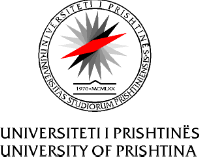Kosovo - Kosova Crisis |
Dear friends,
The dramatic developments in Kosovo urge us to react immediately. We are in daily contact with our contacts in Pristina and Belgrade; they really need all our support and solidarity now. Will you please approach the political leaders (foreign minister) in your country asking them to respond to the demands we have put down in the enclosed statement. Moreover, contact the media and try to publish the statement wherever you can.
In solidarity,
Mary Kaldor (co-chair Helsinki Citizens' Assembly)
Mient Jan Faber (Gerneral Director, Helsinki Citizens' Assembly)
The stalemate on Kosovo is reaching its dramatic end.
Since 1989 the world has watching developments in Kosovo with growing concern but with no effective strategy for de-escalating the conflict. An endless series of missions have visited Belgrade and Pristina over the last years, but they were unable to influence the situation for the better. Threats on Milosovic to prolong or impose new sanctions failed to bring the Kosovo problem one inch nearer to a solution. On the spot, the peaceful forces are rapidly loosing ground. The non-nationalist democratic (opposition) movement in Serbia is small and moreover divided. A recent poll broadcast by the Serbian media gave an alarming picture of Serbian public opinion: 40% of the Serbs believe that the Albanians from Kosovo should be expelled from the territory and forced to emigrate to Albania, while only 4% agreed with the principle of autonomy. In Kosovo, the strategy of non-violent resistance carried out by the Democratic League of Kosovo (chaired by Rugova) has failed to produce tangible results and has lost its credibility among Albanians. The main result of the so-called discussions between Belgrade and Pristina, i.e. the Agreement on Education (Sept. 1996), has been revealed as an empty declaration, because the terms of the Agreement were never signed, let alone implemented by any side and not even made public. The student movement from Kosovo has made it clear that it is fed up with the parallel education system, which it now considers a way of self-deceit. In this climate, and especially after the violent events of the last days, there is a growing readiness, among the Albanians and among the Serbs as well, for a violent confrontation. The assaults and raids of both the Kosovo Liberation Army (KLA/UCK) and the Serbian security forces receive more and more support at home (and as far as the KLA is concerned from the Albanian communities in Macedonia and Albania proper). In this tense situation, the international community cannot afford to stick to its old position: sending missions, offering to mediate, threatening or imposing sanctions and the like. It is not enough. More should be done. And there is no time to loose. The number of victims and the extent of violent clashes are rapidly increasing. We are on the verge of a full war which could engulf the whole of the Southern Balkans.
Statement on Kosovo
The international community should intensify its peacekeeping and
conflict prevention activities in the South East of the Balkan area, in
particular in the Federal Republic of Yugoslavia. Since the main causes
of the tensions are directly related to the contradictory political
aspirations of powerful strands inside the different national groups in
the area (Serbs, Albanians, Macedonians, Montenegrins) there is an
urgent need to introduce an independent international presence in the
region with a strong mandate to prevent war and promote peaceful
relations. Therefore it is necessary to take the following measures:
- The UNPREDEP now deployed in Macedonia should expand its area of operation into the Yugoslav Republic. Its mode of deployment should be adjusted. The aim would be to confine local military forces to their compounds (barracks), and to stop the activities of irregular military units.
- An international police force should be deployed in the area, preferably an expansion of the WEU police force, now active in Albania. It should monitor, advice, train and supervise the local police, especially in areas of tension. Moreover, it should be involved in the recruitment and selection of policemen in order to guarantee that the different national groups are all integrated, in a balanced way, into the policeforces.
- A High Representative should be appointed by the UN or the OSCE, with offices in Belgrade, Skopje, Tirana, Pristina and Tetovo. His (strong) mandate is to create the conditions in which peaceful communication and co-operation among the different communities as well as individuals, could lead to a final political settlement. Special attention should be given to those forces in civil society ready to join the international community in this endeavour.
- A special Contactgroup for the region should be established composed of the members of the actual Contactgroup and the countries directly affected by the ongoing confrontations (Yugoslavia, Macedonia, Albania), including representatives of the Albanian communities from Kosovo and Macedonia. This special Contactgroup should act as a political watchdog and a forum for discussion about political solutions to the problems of the region.
Helsinki Citizens' Assembly (hCa)
6 March 1998
Prague/The Hague





